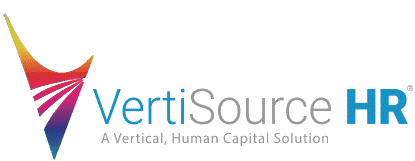We are big believers in the concept of introducing new technologies that make HR teams better at what they do. So it should be no surprise that we are also fans of state-of-the-art human resource information systems (HRIS). We are especially enthusiastic about how a good HRIS can enhance benefits administration.
An HRIS is a technological solution to addressing everything from onboarding to payroll to tax reporting. But these days, we think one of its greatest contributions is to benefits administration. Let’s be honest. Benefits are more important than ever in the aftermath of the COVID pandemic and subsequent Great Resignation.
Employment Is Now an Experience
We are used to thinking of employment as a utilitarian function. Our culture has long viewed it as a business transaction between employer and employee. COVID has changed all of that. The profound implications of COVID in the workplace not only forced companies to change the way they do business, but it also led to employees re-evaluating what is most important to them.
One of the end results is that employment is now viewed as an experience. It is one experience among the many that make up the daily life of a typical worker. And with the realization of that experience has come the realization that traditional benefits fall well short of meeting modern needs.
Employees still want and need health insurance and a retirement plan. But they are looking for more. You have seen the surveys and polls yourself. You know what employees are saying. They want employers to begin offering:
- greater job and scheduling flexibility.
- remote work opportunities.
- mental health benefits.
- financial management and planning assistance.
- childcare assistance and flexibility.
Most importantly, employees want a work experience that makes them feel more like partners than resources. They want to know that their contributions mean more to the company than a series of numbers at the bottom line.
The Role of the HRIS
All of this leads to the question of how an HRIS can help. If an HRIS has two things, it can greatly improve the employment experience. Those two things are automation and benefits administration capabilities.
Automation is a key component of most modern HRIS platforms. And thanks to deep learning and artificial intelligence (AI), automation capabilities are getting better all the time. The most important thing to remember about automation is that it manages routine tasks so that human employees can concentrate on more important things.
Benefits administration capabilities make it possible for a company to bring yet another aspect of HR into the same technological space. Doing so makes benefits administration more efficient. It streamlines the administrative process by reducing data entry, mitigating errors, improving reporting, etc.
Combining automation with benefits administration capabilities reduces the need for HR team members to devote so much time to administrative tasks. That gives them more time to devote to people. Therein lies the key. When team members can focus on people, they can improve the employment experience.
Better Administration Leads to Better Benefits
A company goes full circle when people become the main focus of HR. The HRIS platform enhances benefits administration, thereby allowing HR team members the freedom to work with their fellow employees on improving the benefits themselves. Better benefits lead to more satisfied employees who enjoy a better experience.
Adding benefits administration capabilities to an HRIS isn’t a magic solution to every HR problem. But doing so can enhance the actual process of administering benefits. That can only have a positive impact on a company trying its best to meet the needs of the modern workforce. Here at VertiSource HR, benefits administration is one of our specialties, whether in ASO or PEO services. Contact us today to learn more about how we can optimize your business.
Adding benefits administration capabilities to an HRIS isn’t a magic solution to every HR problem. But doing so can enhance the actual process of administering benefits. That can only have a positive impact on a company trying its best to meet the needs of the modern workforce.


